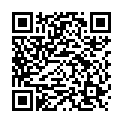|
|
|
| Module code: BAKM-050 |
|
|
2VU (2 hours per week) |
|
3 |
| Semester: 1 |
| Mandatory course: yes |
Language of instruction:
German |
Assessment:
Written exam (60 minutes)
[updated 19.11.2019]
|
Exam recurrence:
The information regarding exam recurrence is found within the exam policy of the study programme (ASPO).
|
BAKM-050 (P430-0030) Cultural Management, Propädeutikum, ASPO 01.10.2020
, semester 1, mandatory course
|
30 class hours (= 22.5 clock hours) over a 15-week period.
The total student study time is 90 hours (equivalent to 3 ECTS credits).
There are therefore 67.5 hours available for class preparation and follow-up work and exam preparation.
|
Recommended prerequisites (modules):
None.
|
Recommended as prerequisite for:
|
Module coordinator:
Prof. Dr. Steffen H. Hütter |
Lecturer:
Prof. Dr. Hellen Gross
[updated 07.06.2025]
|
Learning outcomes:
After successfully completing this module, students will:
_ be able to explain why logistics is as an important component of companies and cultural institutions,
_ be able to analyze the interrelationships between value chains, vertical range of manufacture, as well as in- and outsourcing,
_ be able to explain strategic supplier management and different sourcing concepts,
be able to describe the criteria and procedures necessary for supplier evaluation,
be able to apply basic methods for the qualitative and quantitative selection of locations,
be able to describe tactical logistics methods and instruments,
_ be able to reflect on the role of the cultural manager in production processes and apply key methods of production planning in the cultural sector, _
be able to describe and apply basic methods of quality management for logistics,
_ be able to discuss the advantages and disadvantages of transport choices, especially for cultural institutions.
_ be able to explain the functions of stock keeping,
_ be able to explain shipping and packaging options and analyze the particularities of cultural goods.
_ be able to transfer what they have learned to cultural institutions.
[updated 19.11.2019]
|
Module content:
Topics relevant for cultural managers:
_ Logistics basics
_ Strategic logistics tasks (management of supplier relationships, in- and outsourcing, location planning, use in the cultural sector)
_ Tactical logistics tasks (sales planning, quality management, choice of transport means, especially in the cultural sector, stock keeping)
_ Operational logistics tasks (in the company, as well as the dispatch and packaging of cultural goods and planning tours for orchestras)
[updated 19.11.2019]
|
Teaching methods/Media:
_Lecture with group work, exercises and case studies
On the basis of selected data material and case studies, students will learn to develop concepts independently, implement and reflect on them.
[updated 19.11.2019]
|
Recommended or required reading:
_ Gudehus, T. (2010): Logistik Grundlagen Strategien Anwendungen, latest edition, Springer
_ Koch, S. (2012): Logistik, Eine Einführung in Ökonomie und Nachhaltigkeit, Springer
_ Heiserich, O.-E./Helbig, K./Ullmann, W. (2011): Logistik, eine praxisorientierte Einführung, latest edition, Gabler
_ Huber, A./Laverentz, K. (2012): Logistik, Vahlen
_ Wegner, U./Wegner K. (2017): Einführung in das Logistikmanagement, Springer
[updated 19.11.2019]
|


